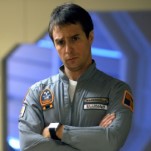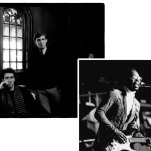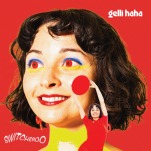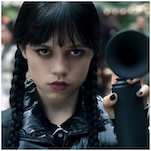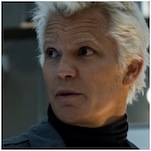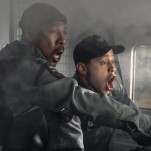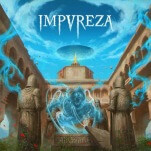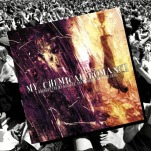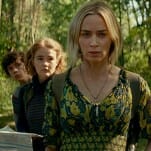Long Shot
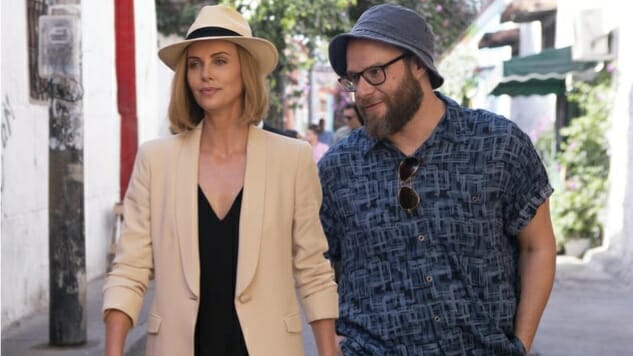
All romantic comedies ultimately rise or fall on one question: Do you buy the central couple? Chemistry is a determining factor, of course, but it’s not the only one. Often, it’s something more intangible, an innate belief on the audience’s part that these two characters make sense together. You can’t always put your finger on precisely what allows an onscreen couple to “work,” but you definitely notice when they don’t.
Long Shot has a few problems, but most critical is that I never entirely accepted its love story. To be sure, there’s meant to be a little implausibility in this unlikely courtship between a beautiful, successful politician and a rumpled, unpolished writer, but the incompatibility goes deeper than those superficial concerns. Charlize Theron once again demonstrates her deftness as a comedic presence—funny, sexy, confident, up for anything—so the problem really comes down to her costar, Seth Rogen, who in recent years has shown a desire to branch out from his Knocked Up persona. He’s been successful in everything from Take This Waltz to Neighbors, balancing maturity with humor. But in Long Shot, he’s simply outclassed.
The film has a clever enough premise. Rogen plays Fred, a scrappy Brooklyn investigative journalist who likes exposing corruption and taking down big corporations. But after an evil right-wing conglomerate buys his independent newspaper, Fred sanctimoniously quits on principle, although he quickly realizes that being the big hero doesn’t mean much when you have no money and few job prospects. As luck would have it, though, that night he goes to a swanky Manhattan party, where he runs into Charlotte (Theron), the United States Secretary of State. Everybody knows Charlotte from television, but Fred has a more personal connection: Back when they were kids, she was his babysitter, and he was already hopelessly smitten. His attraction led to an embarrassing incident that, typical of Long Shot, is vaguely funny, mildly shocking and somewhat underwhelming.
Back to the present: They get reacquainted, and she taps him to be her new speechwriter. Just as in childhood, the idealistic Charlotte has big ambitions. She knows that the clueless president (an underused Bob Odenkirk) won’t be seeking a second term, leaving a lane open for her to run for the highest office in the land. If she can get enough countries to sign off on her sweeping environmental rehabilitation project, it will boost her approval ratings, making her White House bid a sure thing. In Fred, she sees a smart, snarky writer who can inject a little life into her stump speeches. And since Fred has nothing else going for him—and he remains captivated by her optimism and tenacity—he signs on.
Long Shot references Pretty Woman, but the Julia Roberts movie it most resembles is Notting Hill, in which a nobody (Hugh Grant) finds himself in a relationship with the world’s most famous movie star. Directed by Jonathan Levine (who previously worked with Rogen on 50/50 and The Night Before), this new film makes the contrast between the male and female leads even more pronounced. Theron looks stunning throughout, a regal stateswoman who wields charm and intellect to navigate treacherous political waters, while Rogen is the constant punching bag. Fred is an outspoken liberal crusader who believes in the sanctity of his writing and has probably never worn a suit. And, as those around Charlotte often remind him, he’s also kind of a schlub who lacks the decorum or handsomeness to be seen with her—especially when she’s being courted by the hunky Canadian prime minister (Alexander Skarsgård, working a knowingly ludicrous Canuck accent).
But, of course, opposites attract—at the movies, at least—and slowly Charlotte begins to see something in Fred, the stress of the job and their close proximity conspiring to land them in bed. Ideally, this beauty-and-the-stoned-beast friction ought to lead to delightful laughs as these very different people discover in one another something they’ve longed for. But Levine never quite sells their bond, which too much relies on that hoary old rom-com narrative trope: Sure, she’s gorgeous and brilliant, but she falls for this bozo because, gosh darn it, he’s just so lovable.
-

-

-

-

-

-

-

-

-

-

-

-

-

-

-

-

-

-

-

-

-

-

-

-

-

-

-

-

-

-

-

-

-

-

-

-

-

-

-

-

